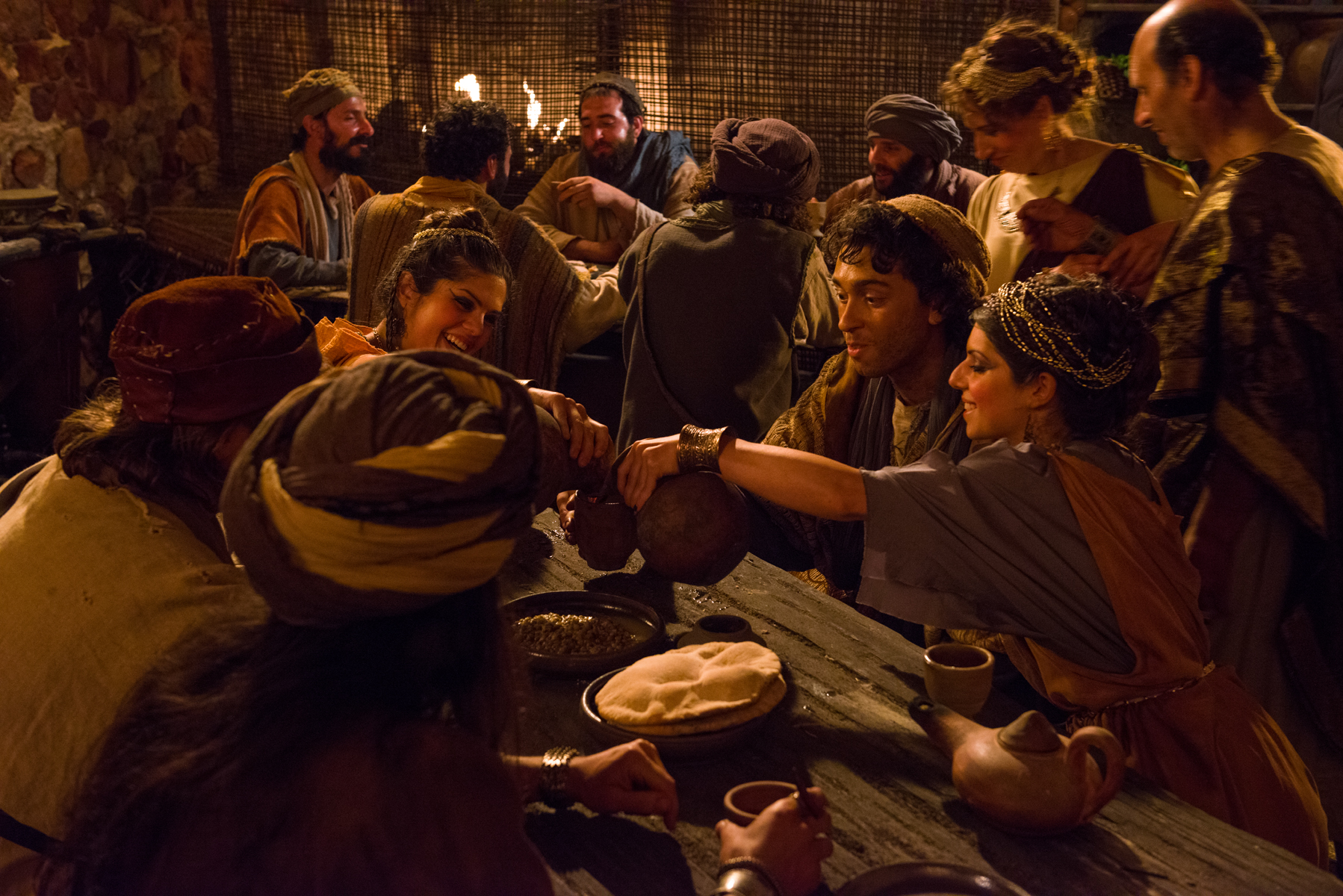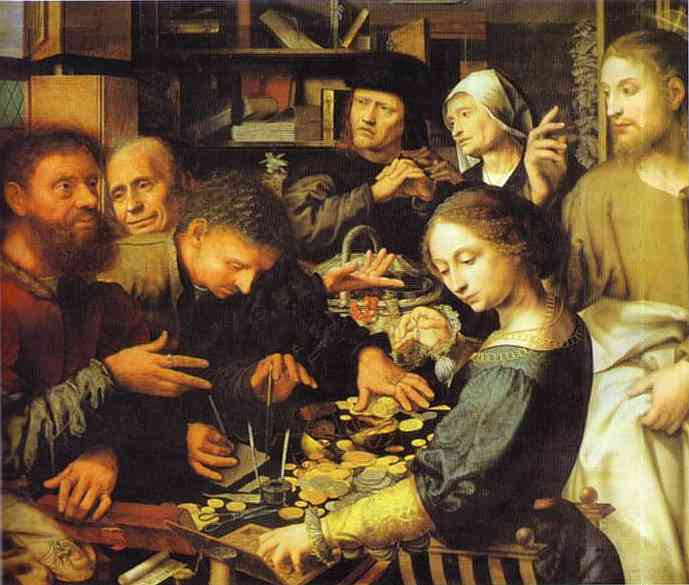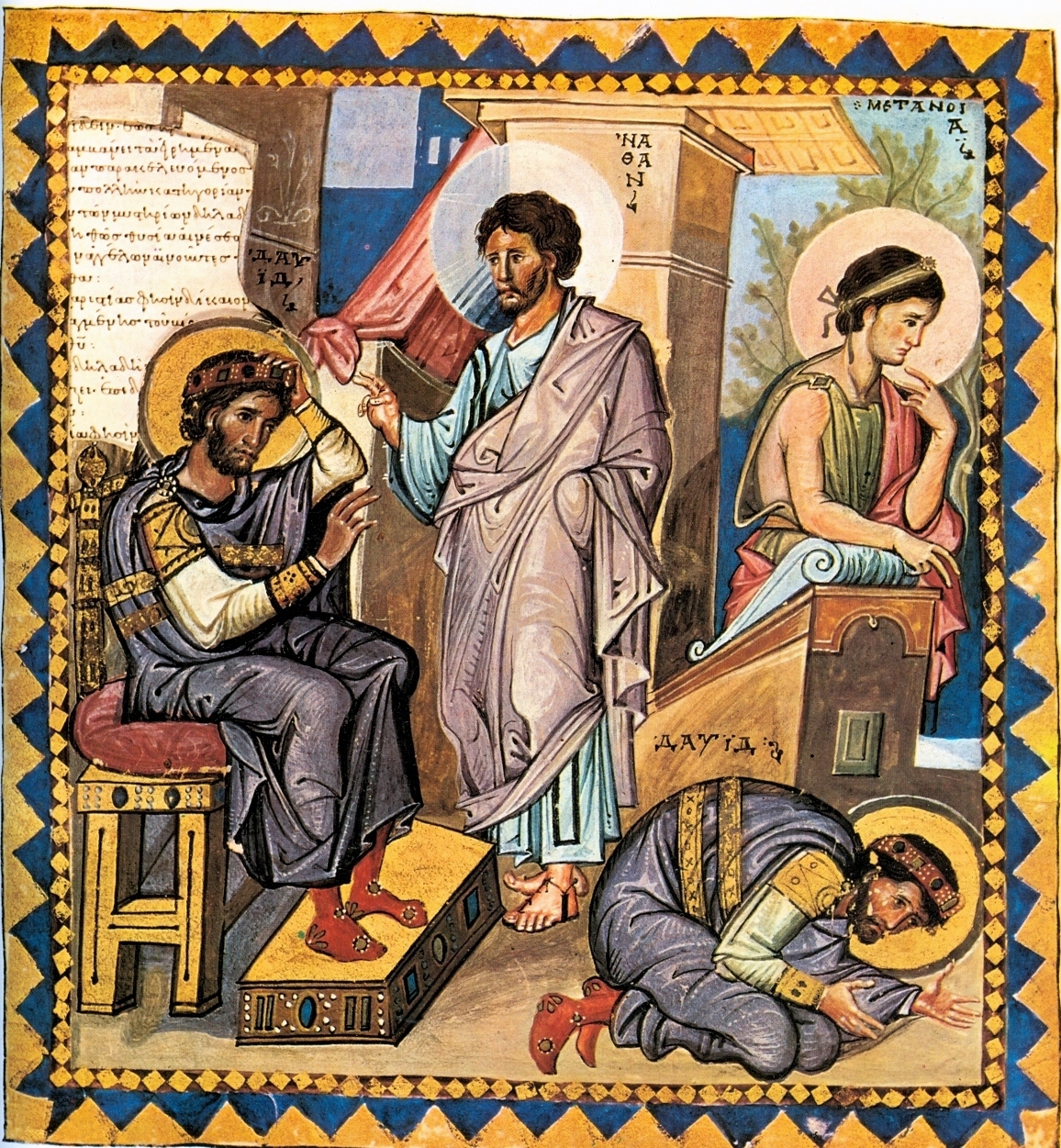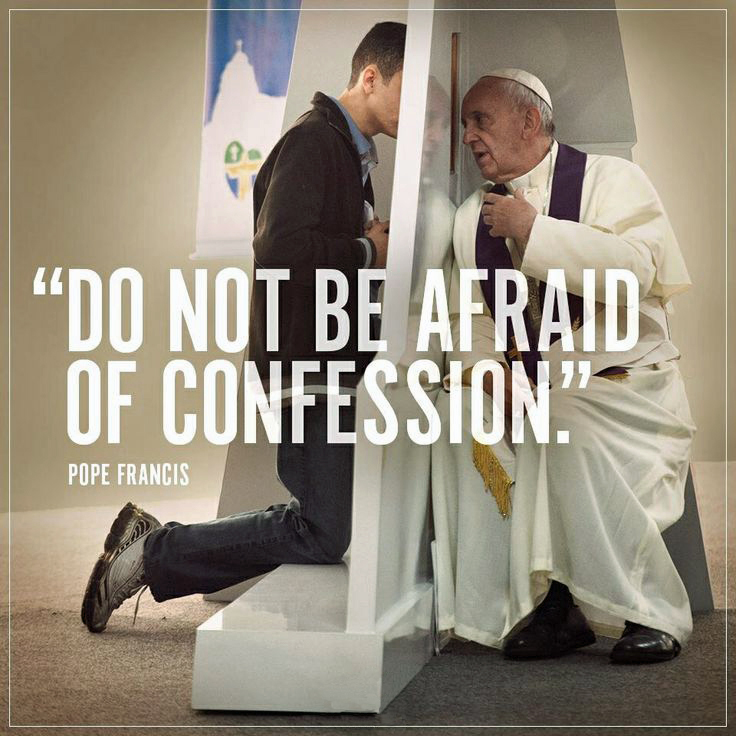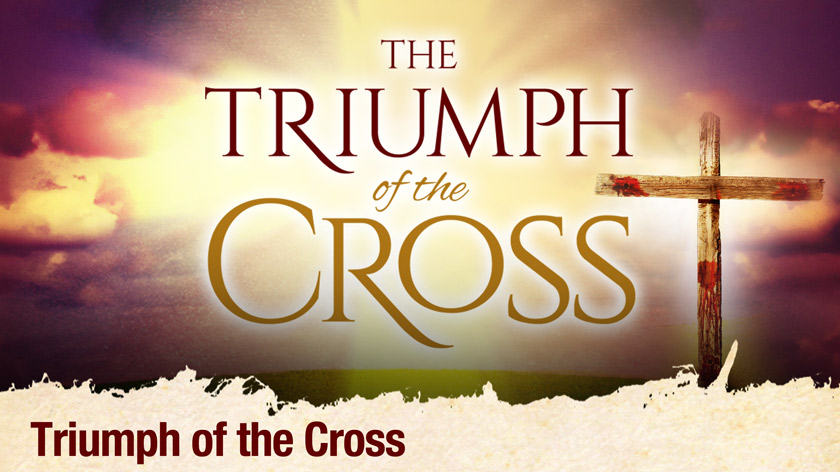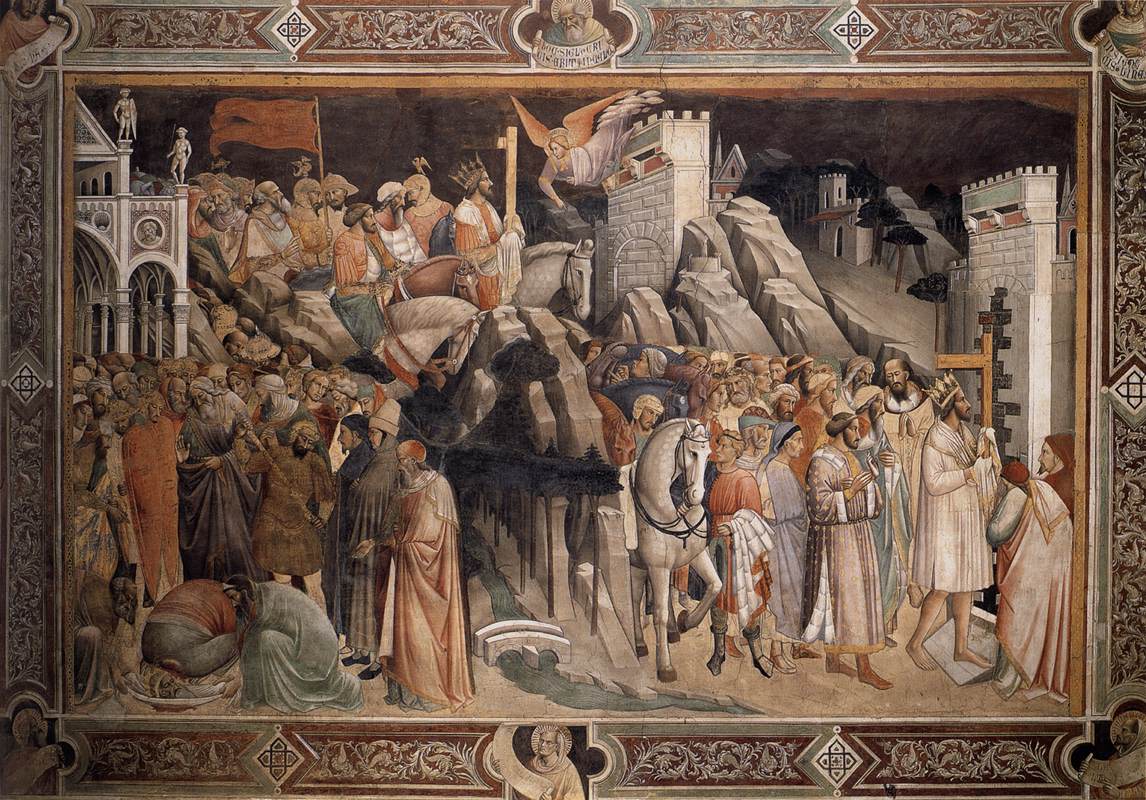
-by Rev Gabriel of St Mary Magdalen, OCD, Divine Intimacy, Baronius Press, (c) 1964
“Presence of God – O Jesus Crucified, grant that my love for You may make me willing to crucify my flesh with You and for You.
MEDITATION
As a result of original sin, man no longer has complete dominion over his senses and his flesh; therefore he is filled with evil tendencies which try to push him toward what is base. St. Paul humbly admits: “I know that there dwelleth not in me, that is to say, in my flesh, that which is good…. For the good which I will, I do not; but the evil which I will not, that I do” (Romans 7:18,19).
God certainly gives us the grace to overcome our evil tendencies; but we must also use our own efforts, which consist in voluntary mortification: “They that are Christ’s have crucified their flesh, with the vices and concupiscences” (Galatians 5:24). The purpose of corporal mortification is not to inflict pain and privation on the body for the pleasure of making it suffer but to discipline and control all its tendencies which are contrary to the life of grace. The Apostle warns us: “If you live according to the flesh, you shall die: but if by the Spirit you mortify the deeds of the flesh, you shall live” (Romans 8:13). We must curb ourselves in order to avoid falls; we must prune the useless or harmful branches in order to avoid deviation; we must direct toward good the forces which, left to themselves, might lead us into sin. For these reasons mortification, although it is not an end in itself nor the principal element in the Christian life, occupies a fundamental place in it and is an absolutely indispensable means toward attaining a spiritual life. No one can escape this law without closing off all access to eternal salvation, to sanctity. St. Paul, who had done and suffered much for Christ, did not consider himself dispensed from it, and said, “I chastise my body and bring it into subjection: lest perhaps, when I have preached to others, I myself should become a castaway” (1 Corinthians 9:27).
COLLOQUY
“This servant of Thine, my God, can no longer endure such trials as come when she finds herself without Thee; for if she is to live, she desires no repose in this life, nor would she have Thee give her any. This soul would fain see itself free: to eat is a torment; to sleep brings only anguish. It finds itself in this life spending its time upon comforts, yet nothing can comfort it but Thee; it seems to be living against nature, for it no longer desires to live to itself, but only to Thee” (Teresa of Jesus, Life, 16).
O Lord, help me, I beg You, to free myself from the slavery of the body! Teach me to conquer its extravagant demands and to mortify its pretensions. You have given me this body of flesh, in order that I may serve You on earth. Grant that it may not become an obstacle to me and hinder the generous, total gift of my whole self to You.
How far I am, O God, from the austerities and mortifications of the saints! “Do I, perhaps, think they were made of iron? No: they were as frail as I. O Lord, help me to understand that once I begin to subdue my miserable body, it will give me much less trouble” (Teresa of Jesus, Way of Perfection, 11). Why should I be terrified by the fear of losing my health?
Sickness and health, life and death, all are in Your hands, my God; everything depends on You. I now make a firm resolution to entrust all solicitude to You, and to keep but one occupation: to love You and serve You with all my strength. Help me, O Lord, to gain the mastery over my body and to conquer it completely, so that I may attain that magnificent liberty of spirit which allows the soul to devote itself undisturbed to the exercise of a deep interior life.”
“The first step to be taken by one who wishes to follow Christ is, according to Our Lord’s Own words, that of renouncing himself—that is, his own senses, his own passions, his own will, his own judgment, and all the movements of nature, making to God a sacrifice of all these things, and of all their acts, which are surely sacrifices very acceptable to the Lord. And we must never grow weary of this; for if anyone having, so to speak, one foot already in Heaven, should abandon this exercise, when the time should come for him to put the other there, he would run much risk of being lost.—-St. Vincent de Paul
The same Saint made himself such a proficient in this virtue that it might be called the weapon most frequently and constantly handled by him through his whole life until his last breath; and by this he succeeded in gaining absolute dominion over all the movements of his inferior nature. Therefore, he kept his own passions so completely subject to reason, that he could scarcely be known to have any.
“He who allows himself to be ruled or guided by the lower and animal part of his nature, deserves to be called a beast rather than a man.”——St. Vincent de Paul
“Whoever makes little account of exterior mortifications, alleging that the interior are more perfect, shows clearly that he is not mortified at all, either exteriorly or interiorly.”——St. Vincent de Paul
This Saint was always an enemy to his body, treating l it with much austerity—-chastising it with hair-cloth, iron chains, and leather belts armed with sharp points. Every morning on rising, he took a severe discipline—-a practice which he had begun before founding the Congregation, and which he never omitted on account of the hardships of journeys, or in his convalescence from any illness; but, on the contrary, he took additional ones on special occasions. All his life he slept upon a simple straw bed, and always rose at the usual hour for the Community, though he was generally the last of all to retire to rest, and though he often could not sleep more than two hours out of the night, on account of his infirmities. From this it frequently happened that he was much tormented during the day by drowsiness, which he would drive away by remaining on his feet or in some uncomfortable posture, or by inflicting on himself some annoyance. Besides, he willingly bore great cold in winter, and great heat in summer, with other inconveniences; in a word, he embraced, or rather sought, all the sufferings he could, and was very careful never to allow any opportunity for mortifying himself to escape.
“Mortification of the appetite is the A, B, C of spiritual life. Whoever cannot control himself in this, will hardly be able to conquer temptations more difficult to subdue.”——St. Vincent de Paul
This Saint had, by long habit, so mortified his sense of taste that he never gave a sign of being pleased with anything, but took indifferently all that was given him, however insipid or ill-cooked it might be; and so little did he regard what he was eating, that when a couple of raw eggs were once set before him by mistake, he ate them without taking the least notice. He always. seemed to go to the table unwillingly, and only from necessity, eating always with great moderation, and with a view solely to the glory of God; nor did he ever leave the table without having mortified himself in something, either as to quantity or quality. For many years, too, he kept a bitter powder to mix with his food; and he usually ate so little that he frequently fainted from weakness.
St. Vincent de Paul made himself so completely master of his tongue, that useless or superfluous words were rarely heard from his mouth, and never a single one inconsiderate, contrary to charity, or such as might savor of vanity, flattery, or ostentation. It often happened that after opening his mouth to say something unusual that came into his mind, he closed it suddenly, stifling the words, and apparently reflecting in his own heart, and considering before God whether it was expedient to say them. He then continued to speak, not according to his inclination, for he had none, but as he felt sure would be most pleasing to God. When anything was told him which he already knew, he listened with attention, giving no sign of having heard it before. He did this to mortify self-love, which always makes us desire to prove that we know as much as others. When insult, reproach, or wrong of any kind was inflicted upon him, he never opened his lips to complain, to justify himself, or to repel the injury; but he recollected himself, and placed all his strength in silence and patience, blessing in his heart those who had ill-treated him, and praying for them. When he found himself overwhelmed with excessive work, he did not complain, but his ordinary words were: “Blessed be God! we must accept willingly all that He deigns to send us.”
“It should be our principal business to conquer ourselves, and, from day to day, to go on increasing in strength and perfection. Above all, however, it is necessary for us to strive to conquer our little temptations, such as fits of anger, suspicions, jealousies, envy, deceitfulness, vanity, attachments, and evil thoughts. For in this way we shall acquire strength to subdue greater ones.”—-St. Francis de Sales
“Believe me that the mortification of the senses in seeing, hearing, and speaking, is worth much more than wearing chains or hair-cloth.”—-St. Francis de Sales
Love, & Blessed Lent,
Matthew
